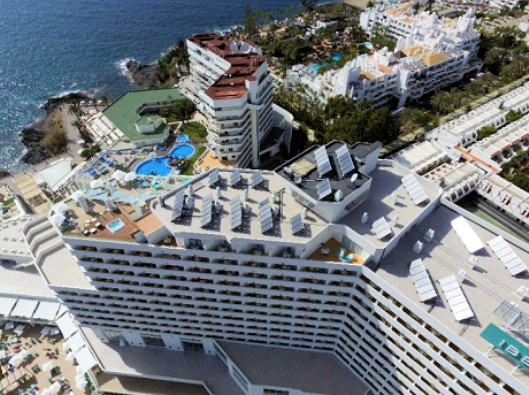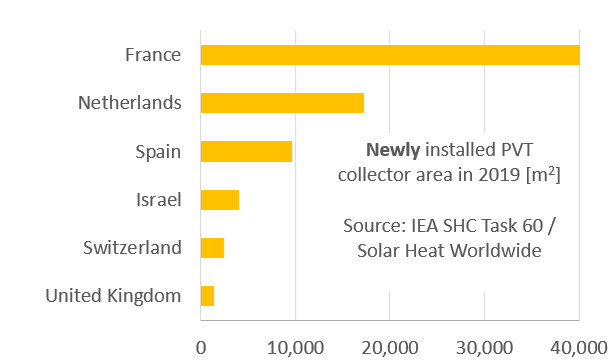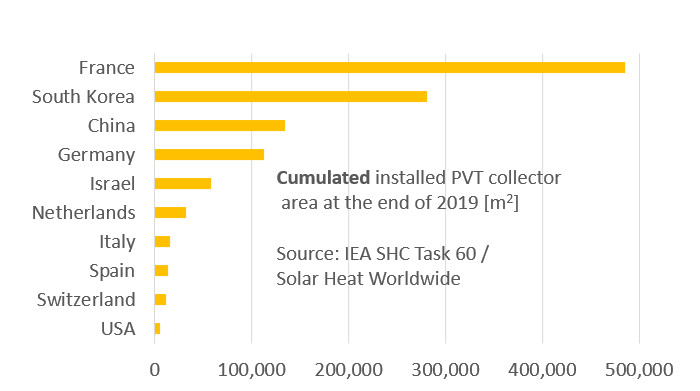Posted: February 28, 2021

Photo: Abora Solar
IEA SHC Task 60, Application of PVT Collectors, shows how a fruitful collaboration between industry and research can lead to a thorough analysis of current and future technological developments. Besides developing a series of standardised key performance indicators to assess the technical and environmental benefits of PVT, the group used suppliers’ sales data to identify new market opportunities while also highlighting different PVT best practice examples, such as the Tenerife-based hotel shown in the photo. Following the end of the three-year task, the PVT specialists have now published a Technology Position Paper that summarises the lessons learned from different projects.
The Task 60 group observed that the number of PVT companies manufacturing high-quality components and systems is rising. In all, 31 producers from 12 countries provided sales figures during the task’s second survey conducted in spring 2020. At the end of 2019, the PVT collector area installed around the world amounted to 1,166,888 m2, which corresponds to 606 MWth or 208 MWel. More than half the capacity represented non-covered, water-filled collectors (55 %), followed by air collectors (43 %), while covered, water-driven systems played only a minor role (2 %). The survey results were published in a chapter in the 2020 edition of Solar Heat Worldwide.
Based on total capacity in operation, the largest PVT markets were France, South Africa, China and Germany (see the chart below).

According to the Technology Position Paper, the PVT industry “is slowly growing” but faces “strong competition from PV”. In all, 31 manufacturers reported selling a total of 91,000 m2 of PVT collectors, about the same quantity as a year earlier.
The country with the biggest PVT collector gains were France, the Netherlands and Spain (see the following chart). The Task 60 experts additionally confirmed that the residential sector has been the main driver of the years-long boom in France’s PVT air collector market. At the same time, they noted a trend in France towards installing a combination of water-filled PVT systems and heat pumps at multi-family and commercial properties.

The researchers also took a closer look at case studies of larger heat consumers, such as hotels in southern Europe, calculating that payback periods could be as little as four years whenever hot water systems are installed in combination with glazed PVT collectors (assuming a 25-year lifetime).
To see PVT grow out of its niche in other markets, the Technology Position Paper recommends taking the following measures, among other Actions Needed:
- Develop clever and fair support schemes for PVT collectors and systems, present them to governments around the globe and call for their implementation. After all, the PVT sector does not receive nearly as much support as the PV or solar thermal industry.
- Broaden architects’, planners’ and installers’ knowledge of PVT solutions. For one, PVT is more efficient than PV only and is an appealing alternative to air and ground source heat pumps.
- Provide information on Solar Keymark Annex J, Specific Requirements for PVT Collector. Another suggestion is to devise a suitable standard on combined PVT testing, to offer all-in-one tests of every batch produced and to cut costs following design changes.
More information: